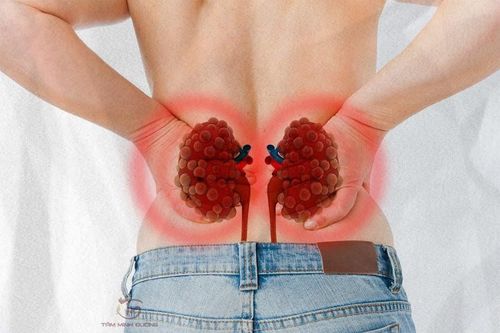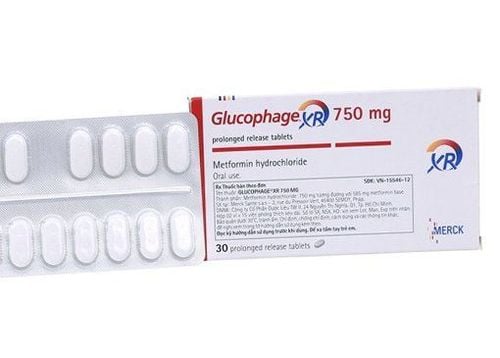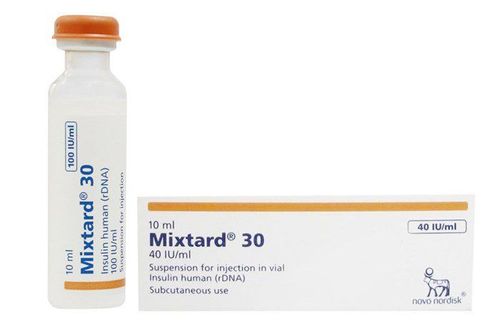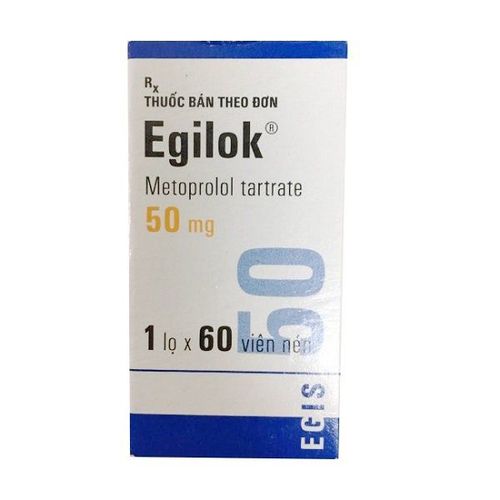This is an automatically translated article.
Posted by Master, Doctor Bui Minh Duc - Head of Endocrinology Unit - Department of General Internal Medicine - Vinmec Times City International HospitalThere are many types of antidiabetic drugs with different effects depending on the goals and treatment regimen of the patient. If the patient has type 2 diabetes, the treatment drug groups are usually oral pills, while the type 1 diabetes patients mainly use insulin to treat.
1. Drugs used in the treatment of diabetes
Diabetes is a common disease today. There are two most common types of diabetes: type 1 and type 2 diabetes. In addition, in the classification of diabetes, there are gestational diabetes and other types of diabetes. Type 1 diabetes is an autoimmune disease, in which the body produces antibodies that attack the beta cells of the pancreatic islets - these are cells that secrete insulin, a hormone that lowers blood sugar. Patients with type 1 diabetes are no longer able to secrete insulin, if they want to maintain life and control blood sugar, the patient must be injected with insulin. The purpose of this is to replace the patient's insulin. Type 2 diabetes has a major pathogenesis of insulin resistance and decreased insulin secretion from pancreatic cells. Accordingly, the pancreas of a patient with type 2 diabetes can still secrete insulin, but the use of insulin is no longer good. There are many classes of drugs used for treatment and they have many different mechanisms of action.
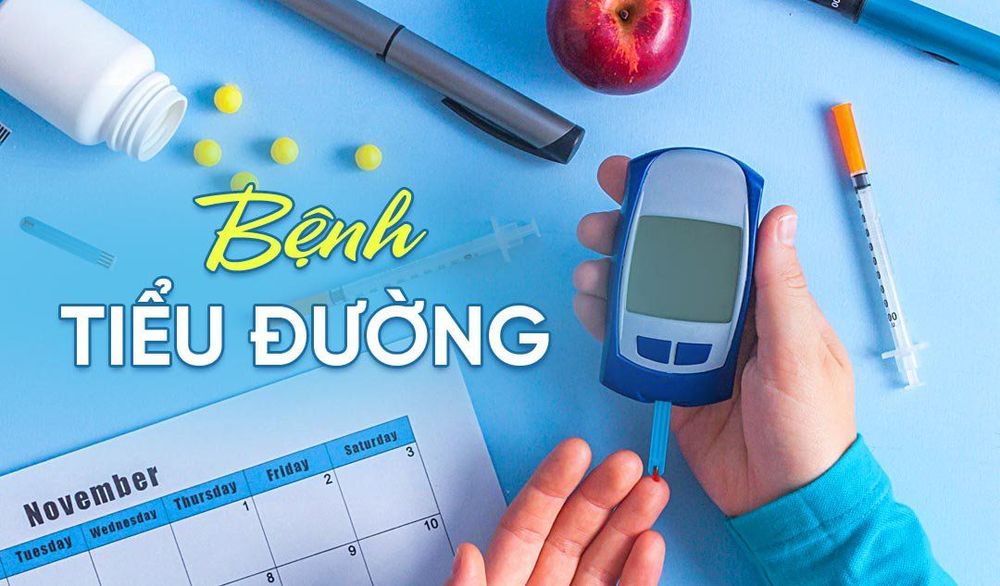
2. Drugs for the treatment of type 1 diabetes
2.1. Insulin
Insulin is the most common drug used in the treatment of type 1 diabetes. With this disease, the patient's body cannot produce insulin on its own. The goal of treatment for this form of the disease is to replace the insulin that the patient's body cannot make. Besides, insulin is also used in the treatment of type 2 diabetes in some cases. They are administered by injection and come in different varieties. The choice of insulin depends on the degree of insulin deficiency and the degree of blood sugar disturbance of the patient. Options include:
Short-acting insulin: Regular insulin (Humulin and Novolin) Rapid-acting insulin: Insulin aspart (NovoLog, FlexPen, Fiasp); Insulin glulisine (Apidra), Lispro insulin (Humalog) Intermediate-acting insulin: I nsulin isophane (Humulin N, Novolin N) Long-acting insulin: I nsulin degludec (Tresiba), Insulin detemir (Levemir), Insulin glargine (Lantus) ), Insulin glargine (Toujeo) Combination insulin: NovoLog Mix 70/30 (insulin aspart protamine-insulin aspart), Humalog Mix 75/25 (insulin lispro protamine-insulin lispro), Humalog Mix 50/50 (insulin lispro protamine-insulin). lispro), Humulin 70/30 (human insulin NPH-regular human insulin), Novolin 70/30 (human insulin NPH-regular human insulin), Ryzodeg (insulin degludec-insulin aspart) Insulin is a drug used to control sugar blood has the strongest effect. Accordingly, when injecting insulin, medical staff should pay attention to the characteristics of each type to have the most appropriate treatment regimen for each patient.
Insulin is primarily used for the treatment of type 1 diabetes (Required Indication). In addition, insulin is indicated for blood sugar control in cases of acute complications of diabetes, diabetic patients requiring surgery or acute diseases. In addition, in cases of type 2 diabetes who cannot balance blood sugar or when liver and kidney failure, ... cannot tolerate oral hypoglycemic drugs, doctors may also prescribe insulin.
During use, users need to be very careful, because if used in excess, insulin can cause hypoglycemia. In addition, insulin should be stored in a cool place, with an appropriate temperature of 4-8 degrees Celsius. When injecting insulin, it is necessary to rotate the injection site to avoid unwanted side effects such as lipodystrophy at the insulin injection site.
2.2. Amylinomimetic Pramlintide (SymlinPen 120, SymlinPen 60) is an analogue of amylin, a small peptide hormone secreted into the bloodstream by the β cells of the pancreas along with insulin after a meal. Amylin supports insulin in controlling postprandial blood sugar. Similar to insulin, amylin is completely absent in people with type 1 diabetes.
These drugs are taken before meals, they work by delaying the emptying time of the stomach. Besides, it also reduces glucagon secretion after a meal, which helps to lower the patient's blood sugar. In addition, the drug Pramlintide also works to reduce appetite through a central mechanism.

3. Drugs for the treatment of type 2 diabetes
Patients with type 2 diabetes still make insulin but no longer use it well. The patient's body cannot make enough insulin to keep blood sugar levels normal. The goal of treatment is to help the body use insulin better and help balance blood sugar levels.
Most drugs for treating type 2 diabetes are oral tablets such as Glumeron 30 MR, Diamicron MR 30mg, Diamicron MR 60mg, Gliclada, Navadiab 80Mg.... However, a few are injectable. Some people with type 2 diabetes may also need insulin to ensure the most effective treatment, avoiding dangerous diabetes complications from occurring.
Above is a summary of commonly used diabetes medications. Patients need to pay attention to the time to take the drug according to the doctor's instructions, especially the time related to meals to ensure maximum effect. Combining diabetes medication with a healthy diet and regular exercise will help you control blood sugar effectively.
Please dial HOTLINE for more information or register for an appointment HERE. Download MyVinmec app to make appointments faster and to manage your bookings easily.





